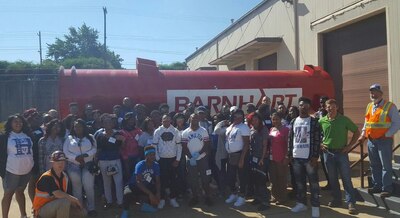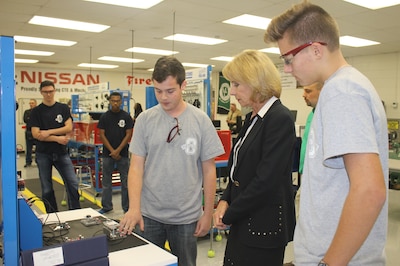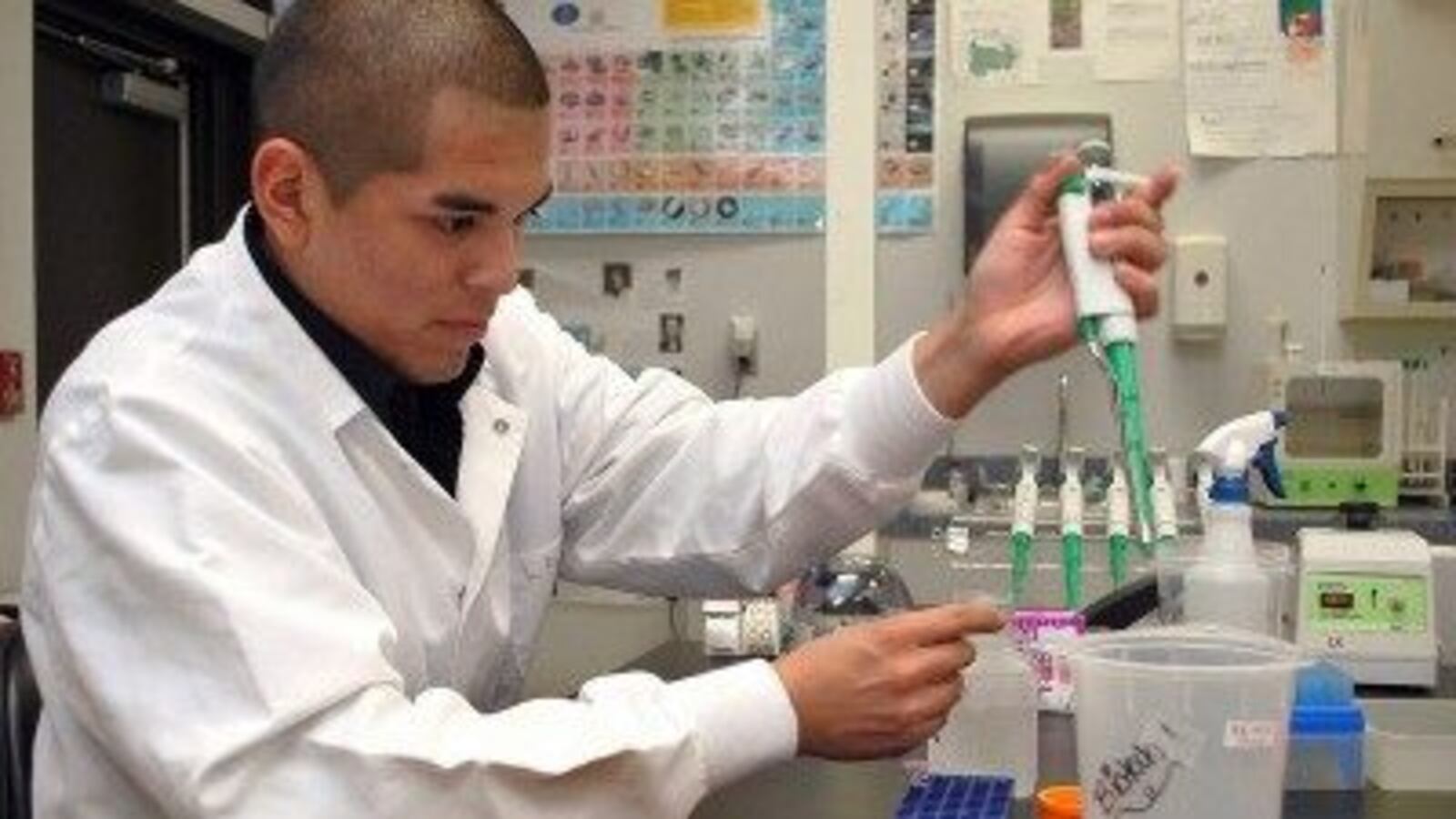Memphis students would get more opportunities to earn job certifications before graduation under a proposed revamp of career and technical education in Shelby County Schools.
Details of the overhaul are still under wraps, but Chief of Schools Sharon Griffin wants to make sure the district’s offerings align with the region’s most sought-after jobs. That may mean more classes focused on hot career fields like health care and information technology.
The school board is expected to get a first look at the proposal later this month.
Career and technical education, or CTE, is getting renewed attention under a state and federal push to prepare students for jobs of the future. And it’s especially important to students in Memphis because nearly half of graduates from Shelby County Schools don’t enroll in any formal education after high school and 21 percent aren’t working either — the highest rate in the nation.
Meanwhile, business leaders are talking with school leaders about improving education pathways to equip graduates for work in high-demand jobs that don’t necessarily require a college degree.
“We need our students to have work-based learning experiences and residencies and then [businesses] don’t even have to train them,” Griffin said. “They’ll come out with a license; we’re going to pay for it. They’ll come out with a license ready to work.”
Currently, the 27 traditional high schools in Tennessee’s largest district offer a total of 207 classes that explore 16 career paths ranging from finance to advanced manufacturing. About 20,000 students participate.

But of about 400 participating seniors who are eligible to gain job certification, less than half did so last school year. Superintendent Dorsey Hopson says that has got to change.
“The point of revamping our CTE program is we don’t really have true effective career paths right now,” Hopson told school board members last week. “We spend $20 million on CTE, but its not designed to say that when I finish this program, I’ve got something I can go out to an employer and say ‘I’m skilled and I’m ready for this job and I’m certified.’”
Shelby County Schools has incentives to revamp its CTE programs. In response to a new federal education law, the Tennessee Department of Education will grade schools in part on how well they prepare students — not just for college, but for directly entering the workforce.
“It’s about making sure you can map and track and document and assess and quantify whether or not something is working,” said Terrence Brown, who co-directs CTE for the district. “And all of that has been on the college-bound, academic part of the house, not in trade and industry and skills and training. [Now] the age of accountability has now come to career and technical education.”
To measure a “ready graduate” under its new plan, Tennessee will look at how many students earned industry certification, took dual enrollment or Advanced Placement classes, passed military entrance exams, or earned a 21 or higher on the ACT. The metric accounts for 20 percent of school and district scores under a new grading system being rolled out later this year.
As part of its stepped-up commitment to workforce training, Shelby County Schools already has introduced a major change to one of its most historic high schools. East High began this school year to transition to an optional school focused on transportation logistics, engineering, and technology in partnership with several businesses such as global engineering manufacturer Cummins.
But the goal is to get a quarter of students districtwide participating in CTE by offering courses at more high schools. And the focus will be on equipping students for high-demand jobs that offer living wages in the Mid-South. More than 100 jobs fit that bill and not all require a college degree, according to a report from the Center for Economic Research in Tennessee. Those fields include electricians, machinists, medical record technicians, and computer support specialists, all of whom earned at least a median income of $40,000 per year in 2016.

U.S. Secretary of Education Betsy DeVos has promoted the importance of career training by visiting schools with robust CTE programs such as one in Murfreesboro that she toured last November during her first stop in Tennessee as education secretary.
Meanwhile, U.S. Sen. Lamar Alexander, the Tennessee Republican who helped author the new federal education law, told Politico recently that updating how federal funds are allocated for CTE is one of his top priorities this year.
But some educators and advocates worry that CTE will become a second-tier track for students viewed as incapable of going to college — or that their advantage in a fast-changing workforce will be short-lived.
“We want to make sure we’re not doing what we use to do with (vocational-technical education),” said Maya Bugg, CEO of Tennessee Charter School Center. “My dad would tell me that, as a black male, they funneled him to vo-tech because you’re a black male.”
A 2015 Stanford University study of CTE programs in 11 countries showed short-term employment gains for students. However, the researchers also found that those students lacked the skills to adapt to changes in the economy later in life compared with peers with a more general education.
Brown said Shelby County’s redesigned program will focus on higher-wage jobs that students can get certified for during high school or can train for in technical schools after graduating. That could boost business prospects when big companies consider locating to Memphis — such as the city’s recent failed bid to land an Amazon headquarters.
“One of the things we believe Amazon was looking for was (information technology) people who could come off the bat and write code and set up cybersecurity,” Brown said. “If you have an IT certification, you’re going to be in demand.”

